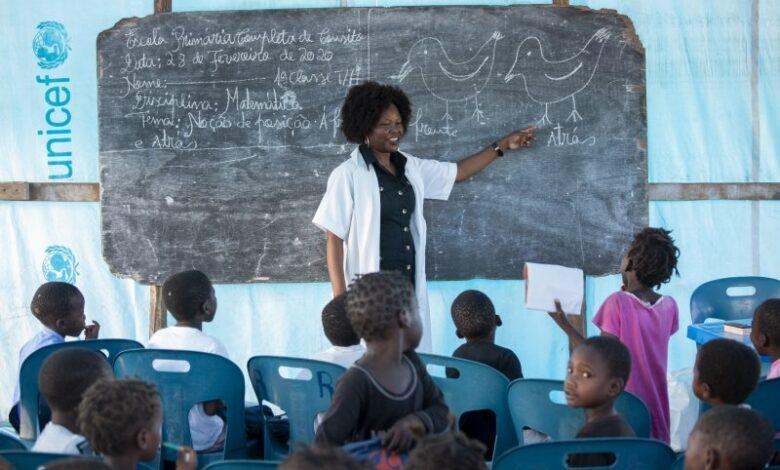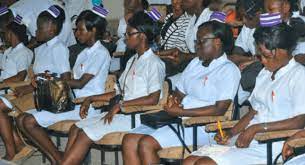
10 Factors Impacting the Education of Girls
Factors Impacting the Education of Girls – Girls’ education is now getting the attention it deserves. For thousands of years, males believed that women should stay at home and should be left to their own devices to govern the household. But now, alternative perspectives are altering how women see themselves, and a number of forces are gradually modifying traditional ideas. African women who are lucky enough to have a solid education have demonstrated their ability in a variety of fields. They successfully pursued careers as physicians, educators, attorneys, etc. They may also be found in business, government, and the private sector. By proving the value of women’s education outside the home, these women have supported the argument for women’s education. Impacting the Education of Girls
Read Also: 15 Factors Affecting National Consciousness In Nigeria
👉 Relocate to Canada Today!
Live, Study and Work in Canada. No Payment is Required! Hurry Now click here to Apply >> Immigrate to CanadaEducation of Girls
Education for girls prepares women for the workforce and helps them understand their legal rights as well as their reproductive rights, enabling them to take advantage of possibilities that may benefit both them and their families. Basic education gives girls the knowledge they need to make decisions about their own lives and bodies by teaching them about basic nutrition, health, and family planning.
Factors Impacting the Education of Girls:
-
Cost
According to the World Bank, the main issue affecting a girl’s ability to obtain school is poverty. Even in places where parents are not required to pay school fees, it can be challenging to keep up with the price of uniforms, textbooks, and transportation. Girls’ income is frequently a parent’s primary source of support, and sending a girl to school implies that she will spend less time helping out around the house.
-
Child Marriage
Though it happens everywhere in the globe, child marriage—the union of a child under the age of 18—occurs disproportionately in developing nations. For a variety of reasons, parents let their daughters to marry children. Some parents feel they are shielding their kids from the stigma or danger that comes with dating someone who is not their spouse, but child brides who don’t receive an education are also more likely to endure early pregnancies, malnutrition, domestic abuse, and pregnancy difficulties. Child marriage eases the financial strain on struggling families, but also makes it more difficult for girls to become financially independent without schooling.
-
Having a Period
Once a month after reaching puberty, a female runs the risk of missing substantial amounts of work and school due to having her period.
Girls feel too ashamed to fully engage in society as a result of the cultural stigma linked to menstruation, which is stigmatized around the world. For instance, in Nepal, community members consider menstruation women to be unclean and confine them to huts while they are menstruating.Information Guide Nigeria
-
Domestic Tasks
Girls who are forced into domestic employment have low self-esteem and lack of interest in school. Girls often shoulder adult duties like caring for ailing parents or watching after younger siblings.
Girls throughout the world work 40% longer hours than boys on unpaid tasks including cooking, cleaning, and gathering firewood. Girls who perform some of these tasks run the risk of being sexually assaulted.
Girls gain in all area of their life when they obtain high-quality education. Women who complete their secondary school report better levels of psychological well-being and are less likely to encounter abuse from intimate partners. They eventually earn more money and have healthier children.
👉 Relocate to Canada Today!
Live, Study and Work in Canada. No Payment is Required! Hurry Now click here to Apply >> Immigrate to CanadaMaintaining females in school fosters economic development, fosters peace, and even aids in the battle against climate change. Prior to protecting present generations, we must devote funds to initiatives and regulations that lessen the risks listed below.
Read Also: 10 Factors That Influence Education in Nigeria
Families are more inclined to send boys than girls to school if they cannot pay the tuition.
-
Violence Against Women
Gender-based violence can manifest itself in a variety of ways, such as bullying, harassment, and physical and/or sexual assault. Girls who have experienced rape, coercion, discrimination, and other forms of abuse are less likely to enroll in school, do as well in class, and have higher absenteeism and dropout rates.
-
Conflict and Crisis
In communities plagued by violence and catastrophe, girls and women face higher barriers to attending school. In nations impacted by armed conflict or natural catastrophes, an estimated 39 million girls and teenage girls lack access to high-quality education. Compared to immigrant males, refugee girls are half as likely to attend school.
In South Sudan, 72% of primary school-aged females and 64% of primary school-aged boys do not attend school. Similarly, 70% of the 3.5 million. Do Not Drag Newsmen into Your Politics, Kogi NUJ Cautions Politicians
Attacks on girls’ schools are three times more common than those on boys’ schools globally. Children are at risk of death or injury, infrastructure is damaged, and educational institutions are permanently crippled when schools are attacked. Without schooling, girls are unable to develop the coping mechanisms and community-rebuilding abilities they require.Good Morning Love Message
Read Also: 10 Factors That Influence Decision Making
-
Trafficking
There are more girls being reported as victims of human trafficking. 23% of the victims of trafficking recorded globally in 2016 were female, compared to 7% of male victims. Most of the females trafficked are forced into sexual exploitation but some are used for forced work and forced marriage.Romantic Love Messages
High rates of physical and sexual assault, as well as problems with mental and physical health, affect women and girls who are trafficked. Girls who experience this kind of violence are more likely to get trapped in a cycle of servitude and poverty that prevents them from pursuing an education. High rates of physical and sexual assault, as well as problems with mental and physical health, affect women and girls who are trafficked.
-
Patriarchal Values and Cultural Beliefs
Girls’ education is still outright prohibited in certain societies. Girls’ options are significantly limited to the roles of childbirth, childrearing, and domestic labour while boys are sent to school. These cultural ideals are bound by patriarchal customs. Families frequently prioritize investing in their son’s education before their daughter’s. This is also known as the “son preference,” which refers to the belief that males are more valued than girls and so have a larger chance of success, meaning that they are more likely to be sent to school first or to have their education prioritized than other family members who are female.Do Not Drag Newsmen into Your Politics, Kogi NUJCautions Politicians
Read Also: 10 Factors that Influence Localization of Industries in Nigeria
-
Risky School Trips: Conflict, Violence, and Other Threats
Girls are far more likely than boys to experience physical and sexual violence in society across the world. When there is no local transportation, many girls frequently travel significant distances to get to school. Given the prevalence of sexual harassment and even violence against teenage females, walking these distances can be highly risky. When there is war, this risk is significantly greater. The World Bank reports that girls in conflict-affected countries are more than twice as likely to not attend school as girls in non-affected nations. For instance, the South Sudanese civil conflict is thought to be the leading cause of around 75 percent of females not attending elementary school, in part because of risky travel among many other factors.NYSC Portal
-
Infrastructure of Class and Scarce Resources
The lack of proper resources and assistance in schools is another obstacle that prevents girls from obtaining an education in Nigeria. The water and sanitation systems in many schools are subpar, and the classrooms are frequently tiny, dark, and unclean with outdated tables and chairs.
In certain rural parts of Nigeria, student-teacher ratios might reach 1 to 100 due to the poor quality of the instructors. Children are deterred from attending school by these unappealing environments and situations.
Read Also: 10 Factors that Influence the Development of Broadcasting in Nigeria
Conclusion
In conclusion, there are several barriers to girls’ education in Nigeria, such as bias, cultural norms, deprivation, lack of access to education, and early marriage. By resolving these issues and ensuring equitable access to education, the education of females in Nigeria will be enhanced.JAMB Portal
Check JAMB RESULT
Check and Confirm: How much is Dollar to Naira








